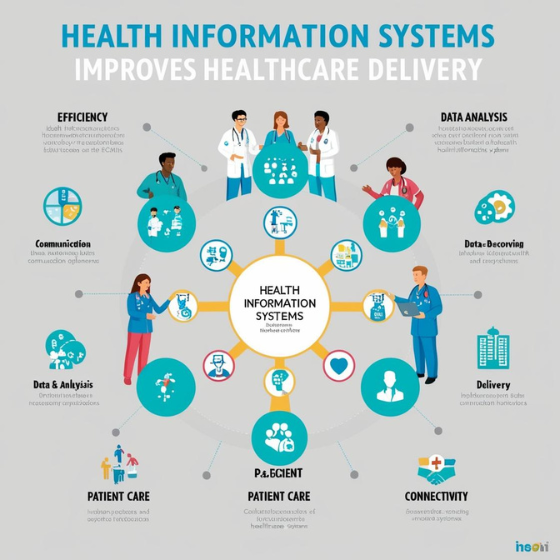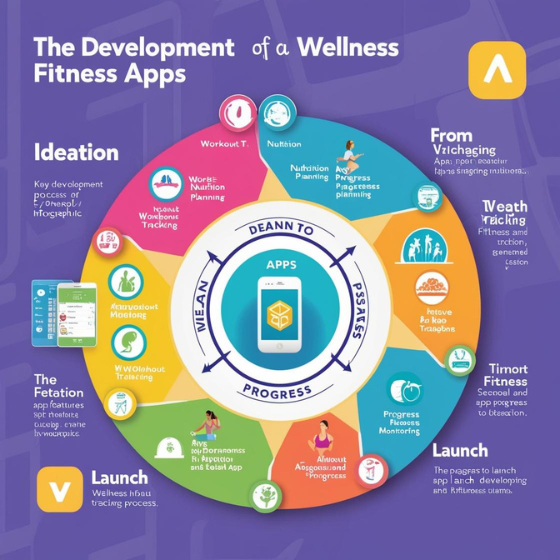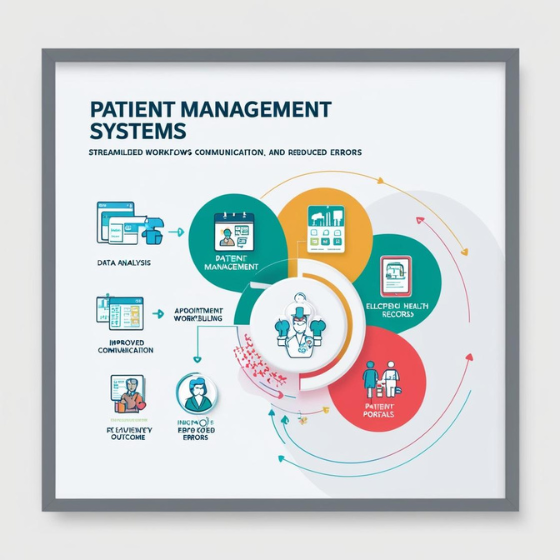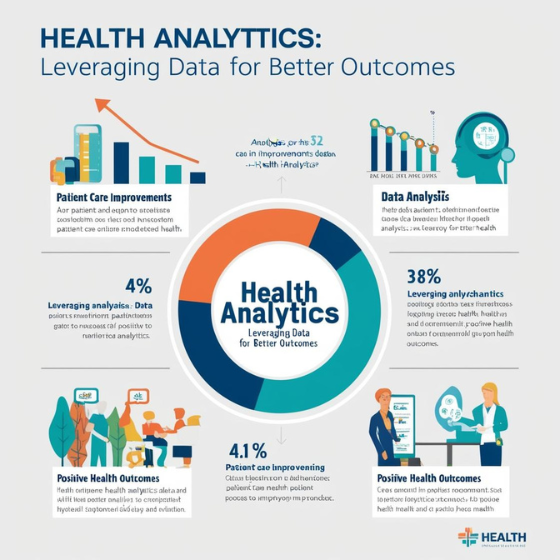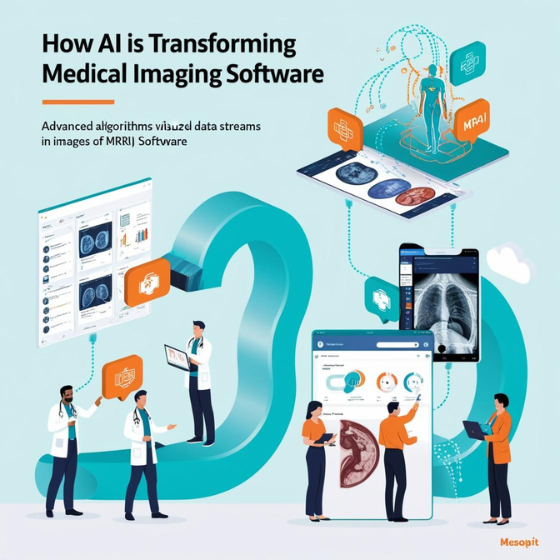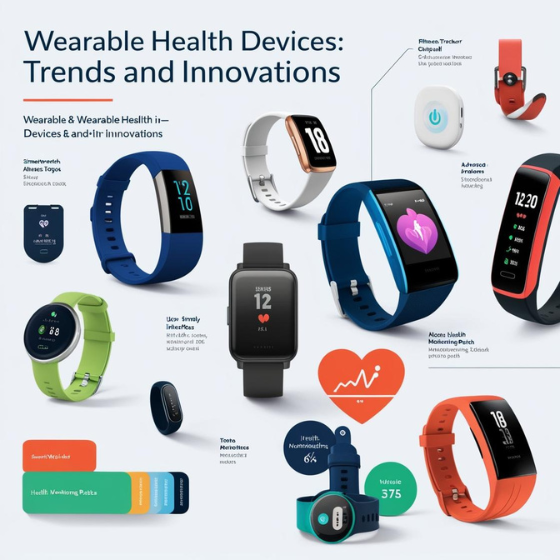Health Information Systems: Improving Healthcare Delivery
In a world where technology is revolutionizing every industry, healthcare is no exception. Did you know that healthcare organizations adopting digital health information systems can reduce operational costs by up to 20% while improving patient outcomes? This staggering fact highlights the transformative potential of health information systems in modern medicine.
This blog dives deep into health information systems: improving healthcare delivery to show how they streamline processes, ensure patient-centric care, and empower providers to make data-driven decisions. Whether you’re a healthcare professional, a tech enthusiast, or a decision-maker in a medical facility, this comprehensive guide will provide actionable insights to understand and implement these systems effectively.
What Are Health Information Systems?
Health information systems (HIS) refer to the technology and processes that gather, store, manage, and share healthcare information. They enable providers to deliver better care by offering real-time access to critical data while ensuring efficiency and transparency.
Key Components of Health Information Systems
- Electronic Health Records (EHR): Digital storage of patient records.
- Practice Management Systems: Tools to handle administrative tasks like scheduling and billing.
- Telehealth Solutions: Platforms enabling remote consultations and monitoring.
- Data Analytics: Insights from large datasets for predictive and preventive care.
Why Health Information Systems Matter
These systems play a pivotal role in improving healthcare delivery by enhancing operational efficiency, reducing errors, and facilitating seamless communication between stakeholders.
How Health Information Systems Improve Healthcare Delivery
1. Enhanced Patient Care
Health information systems consolidate patient data, giving healthcare providers a complete view of a patient’s history, diagnoses, and treatments. This improves decision-making and ensures:
- Accurate Diagnoses: By analyzing historical data, doctors can detect patterns or risk factors.
- Personalized Treatments: Tailor treatment plans to suit individual patient needs.
- Proactive Care: Use predictive analytics to prevent diseases before they occur.
Example: A hospital using EHRs reduced diagnostic errors by 30% within a year, highlighting the system’s potential to revolutionize patient care.
2. Operational Efficiency
Efficient healthcare delivery hinges on streamlined operations. Health information systems eliminate redundant paperwork and automate time-consuming tasks like:
- Appointment Scheduling
- Insurance Claim Management
- Inventory Monitoring
By automating these processes, hospitals and clinics can focus more on patient care and less on administrative burdens.
For instance, integrating Sodio’s custom software solutions can help optimize workflows, ensuring a smooth patient experience from appointment booking to billing.
3. Improved Communication and Collaboration
Healthcare often involves multiple stakeholders, including doctors, nurses, lab technicians, and patients. Health information systems bridge communication gaps, enabling:
- Real-Time Data Sharing: Between departments or facilities.
- Patient Portals: Empower patients to access their records and communicate with providers.
- Interoperability: Seamless data exchange across different platforms.
These systems are particularly beneficial in emergencies, where timely information can save lives.
4. Regulatory Compliance and Data Security
Healthcare providers must comply with stringent regulations such as HIPAA and GDPR to protect patient privacy. Health information systems incorporate:
- Encryption Protocols: Safeguard data during storage and transmission.
- Audit Trails: Monitor access and modifications to sensitive information.
- Secure Access Controls: Limit data access to authorized personnel.
Partnering with experts like Sodio ensures that your health information system not only meets compliance requirements but also builds patient trust.
Key Considerations When Implementing Health Information Systems
1. Customization to Fit Organizational Needs
Healthcare providers vary in size and scope, so a one-size-fits-all approach rarely works. Customizing the system to align with specific workflows ensures maximum utility.
2. Scalability and Flexibility
As organizations grow, their systems must scale to accommodate more users and larger datasets. Flexible systems can integrate new technologies like AI or IoT for future enhancements.
3. User Training and Adoption
Even the most advanced system can fail without proper training. Ensure your staff understands how to use the platform effectively through workshops or tutorials.
Sodio offers end-to-end support, including training modules and user guides, ensuring seamless adoption of your HIS.
Real-World Success Stories
Case Study 1: Transforming a Rural Clinic with EHR
A rural clinic partnered with Sodio to implement a custom EHR system. The result? A 50% reduction in patient wait times and significant improvements in data accuracy.
Case Study 2: Leveraging Data Analytics for Better Outcomes
An urban hospital integrated advanced analytics into their HIS, identifying trends that reduced readmissions by 25%.
These examples illustrate how health information systems: improving healthcare delivery isn’t just a theoretical concept—it’s a practical, achievable goal with the right technology and expertise.
How Sodio Supports Health Information System Development
At Sodio, we specialize in creating innovative health information systems that align with your organization’s goals. Whether you need an advanced EHR, a telehealth platform, or data analytics tools, we’ve got you covered.
Why Choose Sodio?
- Tailored Solutions: Every healthcare provider is unique, and so are our solutions.
- Expert Team: Our developers have extensive experience in the healthcare tech sector.
- Regulatory Expertise: We ensure compliance with all relevant standards, including HIPAA and GDPR.
Explore our services to learn how we can help revolutionize your healthcare delivery.
FAQs About Health Information Systems
Q: What are the challenges of implementing a health information system?
A: Challenges include high initial costs, staff resistance, and ensuring interoperability. However, partnering with experienced providers like Sodio can mitigate these risks.
Q: How do health information systems benefit patients?
A: They provide faster diagnoses, personalized care, and better access to health records.
Q: Can small clinics afford health information systems?
A: Yes! Scalable solutions allow even small practices to implement affordable HIS tailored to their needs.
Conclusion
Health information systems: improving healthcare delivery is no longer a futuristic concept but a present-day reality reshaping the healthcare industry. From enhancing patient care to streamlining operations and ensuring compliance, these systems are indispensable in modern healthcare.
Are you ready to take your healthcare delivery to the next level? Let Sodio help you design and implement the perfect health information system for your needs. Contact us today to get started!
